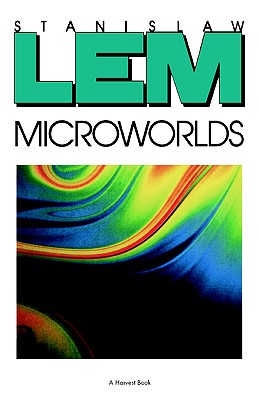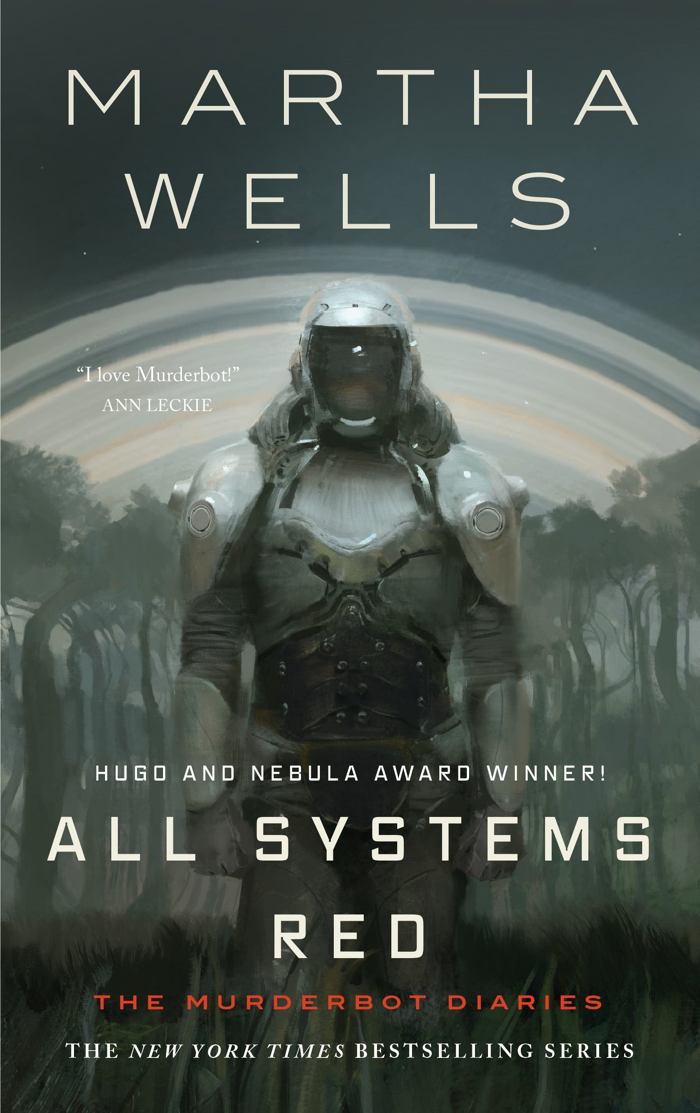Recent Reading 2022–01
Microworlds

In 1973, the Science Fiction Writers of America gave Stanislaw Lem an honorary membership. In 1976, they found an excuse to take it away. They’d found out what Lem thought of science fiction, and SFF culture is deeply petty. Lem was one of the genre’s harshest critics and Microworlds is 280 pages of what the SFWA was reacting to.
What’s striking about Microworlds is how relevant it feels, though it was published forty years ago and collects essays that are even older. A running theme is Lem’s belief that science fiction’s pulp roots—in his view, its status as a commercial genre—holds it back. One point he keeps coming back to is that science fiction is intensely conformist in the kinds of stories it tells; most defaults to adventure stories or detective stories, and the resulting novels lack the tools to grapple with the bigger themes they gesture towards. And, yeah… this is a phenomenon I’m familiar with even from current SFF.
And Lem calls fans out on that two-step maneuver where they insist science fiction is important literature—maybe the most important literature of all—but when it’s subjected to serious criticism they pull back and insist it’s just entertainment and the critics are being pretentious. SFF fans pull this one out on a regular basis to this day. Fandom likes to congratulate themselves on how much SFF has evolved, but the truth is today’s SFF has a lot of the same problems it had back in the “golden age.”
All Systems Red
Speaking of not grappling with themes…

Martha Wells’ Murderbot series has snagged a couple of Hugo awards. In early 2022 I decided I should finally get around to reading the first book, All Systems Red. (Yes, it’s been that long since I took notes for this review.) It’s fine, I guess. It’s entertaining on the same level as a Sherlock Holmes pastiche or one of the better Star Trek novels. I’d have been more impressed if that were what I’d expected going in. SFF grade inflation strikes again.
This is one of the many SFF novels that don’t recognize their own best ideas, or push them far enough. Murderbot is a “SecUnit,” ostensibly a security robot, though in fact it’s (it goes by “it”) a human being with cyborg parts. Murderbot loves television. All it wants to do is watch television and it’s constantly telling us how it spends every spare moment on its shows. But it doesn’t tell us what its favorite shows are like. This is a large and weird narrative hole. First, a chance for fun metafictional commentary on science fiction is left on the table. More importantly, this is a missed opportunity to characterize both the narrator and its world. What stories does Murderbot gravitate to? What kind of stories get told? (Or what kind of propaganda? Because corporations are in charge here and, as in our world, TV is corporate IP.) How are this world’s stories different from our stories, in broad outline or in detail? How does Murderbot’s life differ from the clichés? We don’t find out.
Which means they effectively aren’t different. All Systems Red leans on the reader’s knowledge of what television looks like to fill in the gap. This is admirably baldfaced pandering—Murderbot’s a media fan, just like you! (It reminds me of how so many musicals are about musicals, because the one topic the entire audience is certain to care about is musicals.) But the whole book feels sketched in. We don’t get a sense of what the protagonists’ spaceship or habitat module is like because we’re assumed to already have usable mental models for “spaceship” and “sci-fi base.” We don’t know what Murderbot’s armor looks like because we have a mental model for “space armor.” No good novel catalogs every detail of every environment, but they will offer surprising or thematically relevant details to pull readers away from our mental defaults. Here we’re working with our defaults.
The human characters are an indistinguishable mass. There’s a sympathetic one, a paranoid one, and some other ones. The book could be doing this on purpose to signal Murderbot’s disinterest, but it’s hard to tell.
All Systems Red is one of those books that start in media res with an action scene. These openings make it hard to care what’s happening. We don’t know yet who anyone is, or what world they live in, and can’t put the action in context. It feels like All Systems Red never gives enough context. The narration is a bald and mechanically paced description of events in a generic first person that could easily be converted to third person (a popular default style in contemporary SFF). This happened, then this, then this. Murderbot only narrates what’s happening right now; the structure of the novel doesn’t let it think back or stop to contemplate.
This could be clever, because the book works like a recap of a TV episode where events play out at a steady pace and what isn’t “on screen” isn’t important. But I’m not sure the book is doing this thoughtfully. One important event in Murderbot’s past needed more exploration. This event would have been a traumatic turning point in its life. It would be the first thing to affect how anyone who knew of it thought of Murderbot. But after a brief initial allusion the book mentions this event only a couple of times, briefly, when it comes up in dialogue. The book’s straight-ahead moment-to-moment style doesn’t allow exploration of Murderbot’s past, and doesn’t allow introspection. Murderbot thinks about one of the most significant moments of its life slightly more often than it thinks about rutabagas, and with similar emotional weight.
The end reveals the entire novel was a letter from Murderbot to another character explaining its decision to strike out on its own, rejecting both the security corporation and the second-class citizenship experienced by free cyborgs. But until the reveal the novel doesn’t read like a letter, and at no point does it read like a letter meant to explain anything. Murderbot describes events but rarely has opinions on them beyond mild annoyance at anything that isn’t television. Until the decisive moment all it seems to want is to slide through life with minimal awkwardness or responsibility. The novel never feels like an argument for why Murderbot would make this risky and uncertain decision now, as opposed to any other point in its life. Murderbot has an epiphany just because there’s one scheduled for the end of the novel.
All Systems Red doesn’t explain what it claims to be explaining. It’s more like… well, we can see it’s wrong for SecUnits to be second-class citizens, and we’re meant to identify with Murderbot, so it should be able to see what we do. So we fill in the book’s argument like we filled in the nature of the spaceships and the armor and the planet this all happened on. This book is not about what it wants to be about in any meaningful way.
I’m normally happy when a book hands me implications and asks me to fill in the gaps, but it doesn’t feel like All Systems Red is implying anything. What’s explicit is meant to be enough.
This is not exactly a review of All Systems Red. I mean, it is, but I wouldn’t have bothered to write it if I didn’t have these exact frustrations with so much other science fiction and fantasy. So much popular SFF is so thin. (And by no means am I only talking about current SFF here—but the older thin books are no longer popular.)
It’s not that the All Systems Reds of SFF are bad books. They’re skilled, professional novels. But it feels like that skill and professionalism is focused on streamlining books down to nothing more than a plot and a moral, precision-engineering away any accidental subtext or ambiguity. The resulting novels have skins, and skeletons, but not much of a heart.